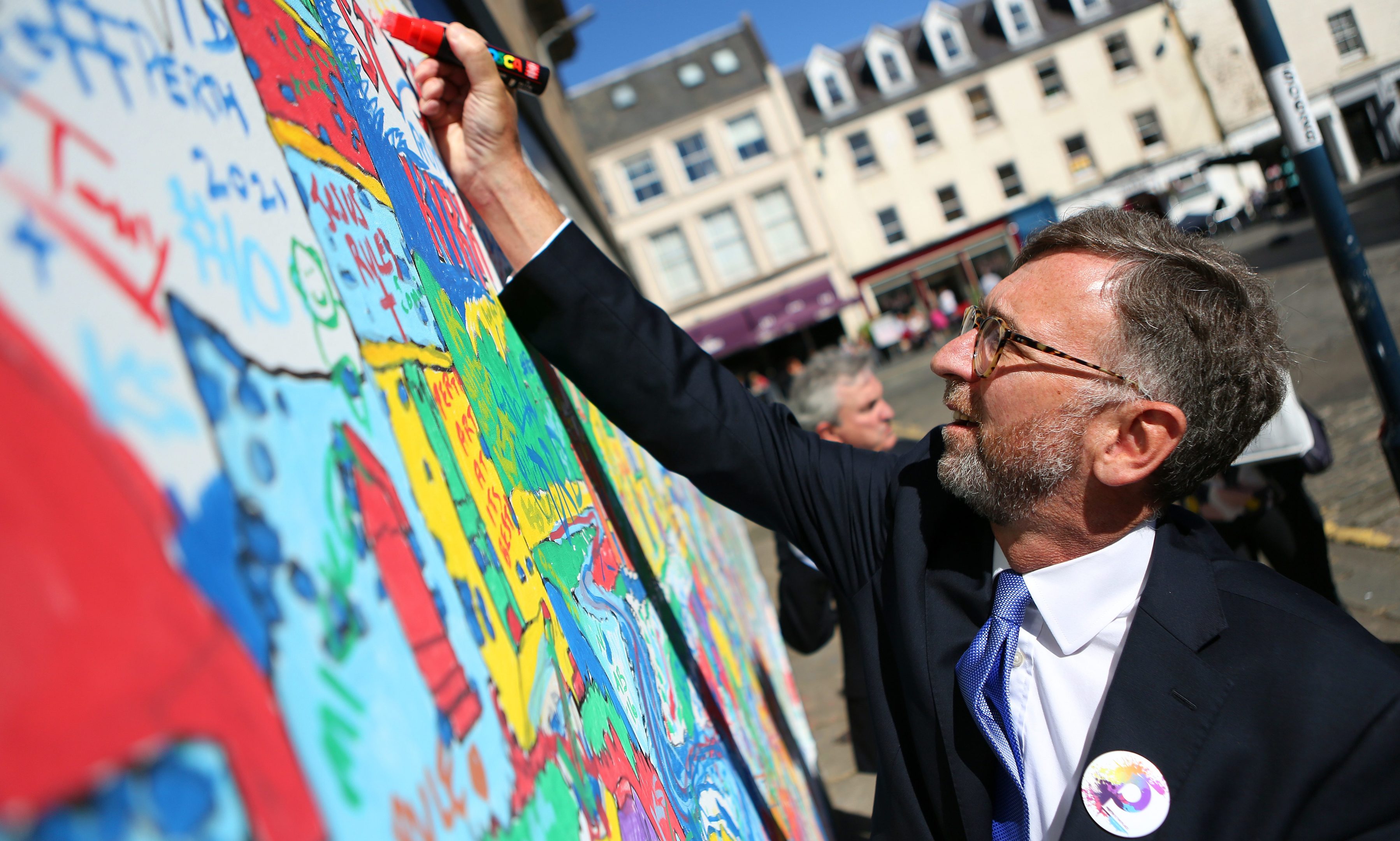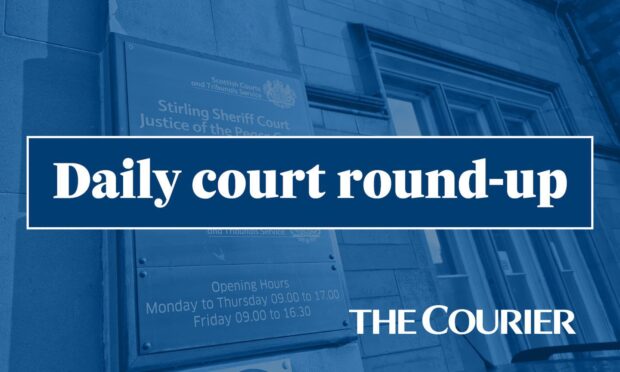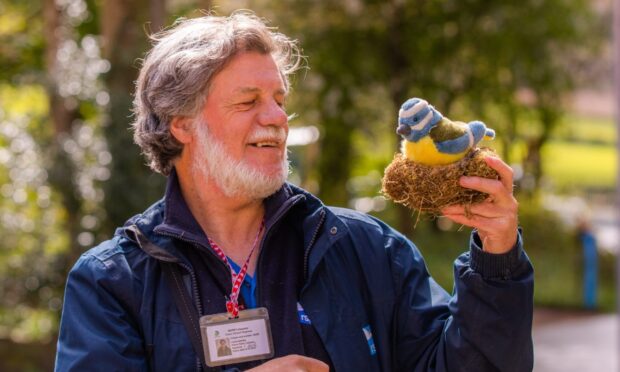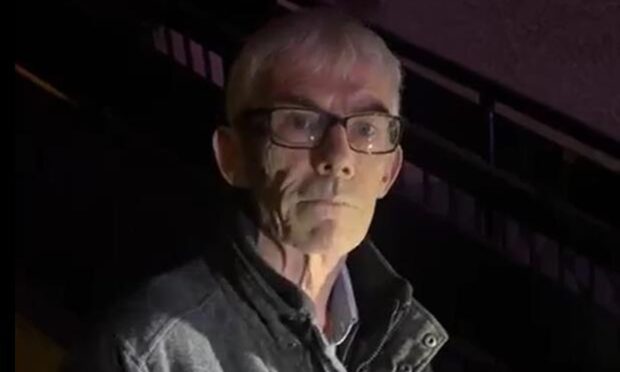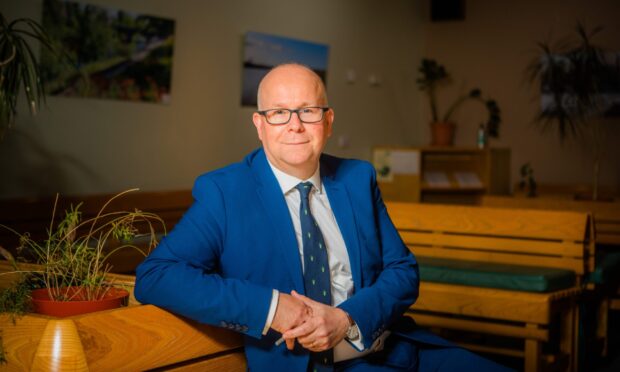Perth is facing fresh competition for the coveted City of Culture crown, it has emerged.
Five towns and cities have made last gasp bids for the 2021 title.
Perth, alongside Paisley, Stoke, Sunderland, Coventry and Hereford, have already announced their intention to compete.
Warrington, Portsmouth, Wells, Swansea and St Davids – Britain’s smallest city – are also in the running.
The list of 11 competitors was confirmed on Thursday by UK Minister of State for Digital and Culture Matt Hancock.
It was also revealed the Heritage Lottery Fund will be pledging £3 million to the winning city.
All final bids must be submitted by the end of April and a shortlist will be announced in July. The winner will be revealed at a ceremony in City of Culture 2017 winner Hull during December.
UK Government Minister for Scotland Andrew Dunlop, who visited Perth days after its official campaign launch in August, said: “The UK City of Culture competition is a real opportunity for towns and cities to put themselves on the map and it’s great news that two Scottish entries are in the running.
“I’ve seen the fantastic quality of the Perth and Paisley bids first hand, and I wish them both the very best of luck.”
He said: “It would be a huge achievement to bring the prize to Scotland.”
Mr Hancock added: “I am delighted to see so many bids from across the country, showing how many areas recognise the important role culture can play in the development and regeneration of communities.
“UK City of Culture helps boost tourism and raises the profile of arts and culture. The exciting funding commitment from the Heritage Lottery Fund today is yet another incentive for towns to secure this prestigious title.”
Hull became the second city to host the title and a 365-day programme of cultural events is well under way.
It is estimated that the status will deliver a £60 million boost to Hull’s economy. The city has already seen a £1 billion investment since it won the title in 2013.
Ros Kerslake, chief executive of the Heritage Lottery Fund, said: “This list shows there is clearly a great deal of enthusiasm among the UK’s cities for celebrating their unique culture.
“Heritage, much of which has benefited over the past 23 years from National Lottery funding, is so important to a city’s identity, as well as making a huge contribution to tourism, jobs and the local economy.”
She added: “Building on the support we have given to Hull 2017, this funding will allow the UK City of Culture 2021 to showcase its heritage to the world.”
Perth
Perth, the old Pictish word for wood or copse, was Scotland’s historic capital. It has been known as the Fair City since Sir Walter Scott’s story The Fair Maid of Perth was published in 1828. The Perth and Kinross patch has a population of around 50,000.
Paisley
Some seven miles from Glasgow, Paisley blossomed in the early 19th century as a centre for textiles. The name ‘Paisley’ was given to the Kashmiri pattern of curving shapes found on silk and cotton fabric.
Stoke-on-Trent
With a population of just under 500,000, Stoke is largest place on the City of Culture long-list. Home of England’s pottery industry, its famous sons include Robbie Williams, Lemmy and Slash from Guns N’ Roses.
Sunderland
Sunderland has undergone a huge regeneration since the 1980s. Lewis Carroll was a regular visitor and some parts of the city – such as Hylton Castle – were thought to be inspiration for Alice In Wonderland.
Coventry
The famous scene in The Italian Job, where Mini Coopers are driven at speed through Turin’s sewers network, was actually filmed in Coventry. The pipe were accessible because they were being installed at the time. Ghost Town by The Specials is said to be inspired by Coventry.
Hereford
Like Perth, Hereford is undergoing a major city centre revamp. The cathedral city is the home to TV personality Wincey Willis and was the birthplace of Muppets puppeteer Frank Oz, the voice of Yoda.
Warrington
In a 2015 study by the Royal Society of Arts, Warrington scored lowest of all UK authorities in terms of heritage assets, and the town was described in the national press as “the least cultural place in Britain”.
Portsmouth
The city, one of the world’s best known ports, played a major part in the 50th D-Day anniversary in 1994. Visitors included the then-US President Bill Clinton. Charles Dickens was born here.
Wells
The Somerset city was transformed into Stanford for the 2006 movie Hot Fuzz. The film’s director Edgar Wright was born in Wells. The independent Wells Cathedral School is thought to date back to the year 909.
Swansea
Swansea was the first city in Wales to feature in its own version of the board game Monopoly. The Swansea edition features 33 local landmarks, including the Mumbles Pier and the National Waterfront Museum.
St Davids
Like Perth, St David’s had its city status taken off it. It was restored at the request of Queen Elizabeth II in 1994. With a population of less than 2,000, it is Britain’s smallest city.
